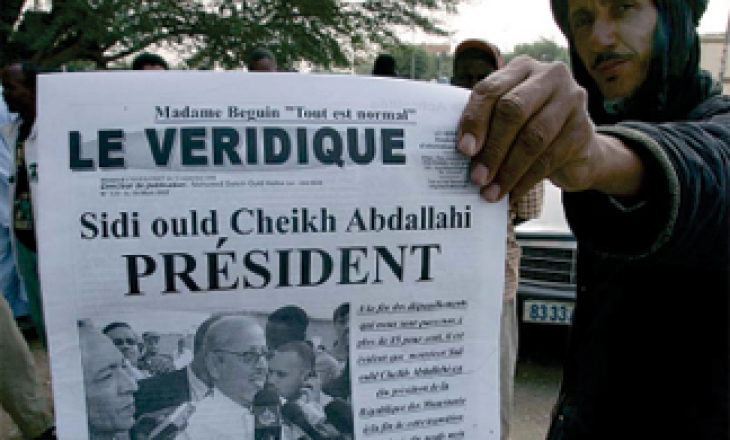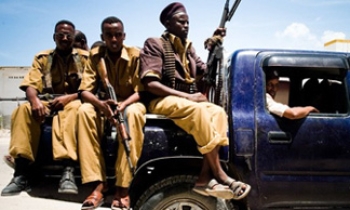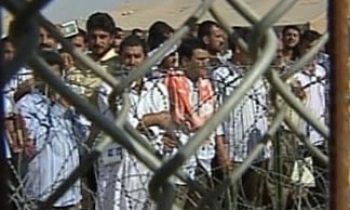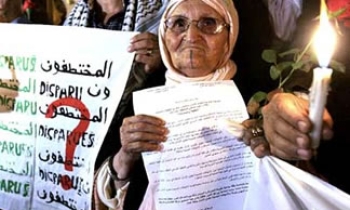Media freedom is nowhere on the agenda in the Middle-East, North Africa and the Gulf. The region remains generally opposed to the free flow of news despite some easing of press laws and a few signs of opening up and greater tolerance.
The three sub-regions have very different national constitutions and press laws and a variety of regimes (that also often clash with each other, sometimes violently) but they all share a determination to control the news, says the Doha Centre for Media Freedom (DCMF), which Monday put out its first report on the state of media freedom in 20 countries in the region.
All of them ban journalists from dealing with sensitive topics (such as religion, border questions, the huge fortunes of their rulers and the state of their armed forces). They all have an elite that cannot be criticised (presidents, reigning families, the very rich and those tied to the regime) and censor the media as soon as it reports social unrest—in Gafsa (Tunisia), Sidi Ifni (Morocco) and Mahalla (Egypt)—or wants to witness a war (Israel and Egypt recently joined to ban journalists from the Gaza Strip).
The region’s governments shelve their ideological differences to agree that freedom of expression is dangerous and media outlets that defend it are potential threats. Even governments that say they are modernising, such as Jordan, Egypt and Morocco.
But things are slowly moving in the right direction and taboos are shrinking. Journalists are less docile and some are rebelling. Government news monopolies are cracking, with the rise of satellite TV stations that mock frontiers (to the irritation of the Arab League information ministers) and the Internet which gets round the censors despite imprisonment of bloggers and other users in Morocco, Egypt and Iran. Newspapers spring up here and there or keep going despite the odds as proof that authoritarian regimes and pliant media are not inevitable in the region.
But the path to modernity and freedom is arduous, with many pitfalls, says DCMF. A case of one step forward and two steps back. And always the same old excuses for opposing media freedom, such as religious friction (though this is real), the population’s lack of “maturity,” the chaos in a neighbouring country (Tunisia’s ruler pointed to Algeria’s civil war and atrocities in the 1990s) and the government’s own vulnerability (an excuse often heard in Gulf states). And many other “objective” reasons to clamp down on freedom of expression.
President Barack Obama’s election in the United States may strengthen efforts to build media freedom. George Bush’s departure means his grandiose plans for the region are dead and buried, along with the “dream” of bringing democracy (and a degree of media diversity) with an invading US army. The drop in violence in Iraq gives Obama a chance to devise a new policy towards the region.
Western democracies (sometimes bad examples of media freedom, when they not shutting their eyes to the bad behaviour of their Israeli “ally”) share responsibility for the state of the region, but it is obviously local leaders who must take action and confront the real obstacles to media freedom.
Among the problems needing attention are repressive laws (in Saudi Arabia, Qatar and Syria), endless trials of journalists (in Egypt, Yemen and Algeria), disproportionate fines (Kuwait and Morocco) and lack of effective independent organisations to defend journalists (Egypt and Jordan). And the ever-present failure to punish nearly all those who physically attack journalists, sometimes killing them, as the Israeli army has in the Occupied Territories and the US army and terrorist groups have in Iraq.
The battle against terrorism has been used to justify all kinds of abuses, including imprisonment of journalists at the US base at Guantanamo, but it cannot excuse the eagerness with which some dismiss even the idea of democracy and its companion, media freedom. The media must fight self-censorship and journalists must find the courage to go on fighting for freedom of expression. Ordinary citizens can help them in this battle, which is not just for them to fight.










